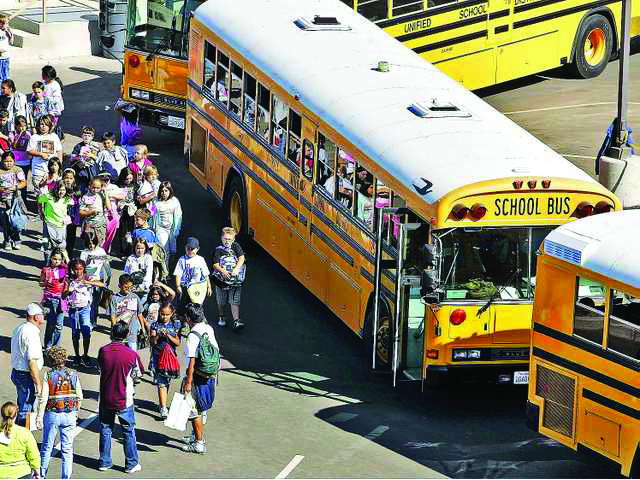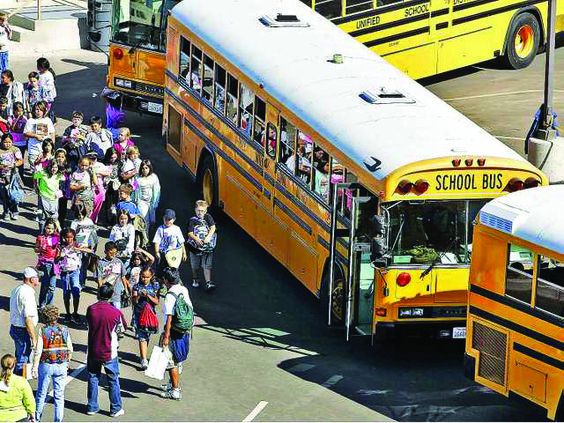A movement to put cleaner burning school buses on the road to address air quality and health concerns means school districts such as Manteca Unified may be faced with buying replacement buses that can run 70 percent more than the $170,000 price tag for a large diesel bus.
ELECTRIC BUS STICKER SHOCK
Replacing diesel buses with electric carries 70% higher upfront price tag





